第140章 LXIV.(1)
The dinner which the Marches got at a restaurant on Unter den Linden almost redeemed the avenue from the disgrace it had fallen into with them. It was, the best meal they had yet eaten in Europe, and as to fact and form was a sort of compromise between a French dinner and an English dinner which they did not hesitate to pronounce Prussian. The waiter who served it was a friendly spirit, very sensible of their intelligent appreciation of the dinner; and from him they formed a more respectful opinion of Berlin civilization than they had yet held. After the manner of strangers everywhere they judged the country they were visiting from such of its inhabitants as chance brought them in contact with; and it would really be a good thing for nations that wish to stand well with the world at large to look carefully to the behavior of its cabmen and car conductors, its hotel clerks and waiters, its theatre-ticket sellers and ushers, its policemen and sacristans, its landlords and salesmen; for by these rather than by its society women and its statesmen and divines, is it really judged in the books of travellers; some attention also should be paid to the weather, if the climate is to be praised. In the railroad caf?at Potsdam there was a waiter so rude to the Marches that if they had not been people of great strength of character he would have undone the favorable impression the soldiers and civilians of Berlin generally had been at such pains to produce in them; and throughout the week of early September which they passed there, it rained so much and so bitterly, it was so wet and so cold, that they might have come away thinking it's the worst climate in the world, if it had not been for a man whom they saw in one of the public gardens pouring a heavy stream from his garden hose upon the shrubbery already soaked and shuddering in the cold. But this convinced them that they were suffering from weather and not from the climate, which must really be hot and dry; and they went home to their hotel and sat contentedly down in a temperature of sixty degrees. The weather, was not always so bad; one day it was dry cold instead of wet cold, with rough, rusty clouds breaking a blue sky; another day, up to eleven in the forenoon, it was like Indian summer; then it changed to a harsh November air; and then it relented and ended so mildly, that they hired chairs in the place before the imperial palace for five pfennigs each, and sat watching the life before them. Motherly women-folk were there knitting; two American girls in chairs near them chatted together; some fine equipages, the only ones they saw in Berlin, went by; a dog and a man (the wife who ought to have been in harness was probably sick, and the poor fellow was forced to take her place)passed dragging a cart; some schoolboys who had hung their satchels upon the low railing were playing about the base of the statue of King William III. in the joyous freedom of German childhood.
They seemed the gayer for the brief moments of sunshine, but to the Americans, who were Southern by virtue of their sky, the brightness had a sense of lurking winter in it, such as they remembered feeling on a sunny day in Quebec. The blue heaven looked sad; but they agreed that it fitly roofed the bit of old feudal Berlin which forms the most ancient wing of the Schloss. This was time-blackened and rude, but at least it did not try to be French, and it overhung the Spree which winds through the city and gives it the greatest charm it has. In fact Berlin, which is otherwise so grandiose without grandeur and so severe without impressiveness, is sympathetic wherever the Spree opens it to the sky.
The stream is spanned by many bridges, and bridges cannot well be unpicturesque, especially if they have statues to help them out. The Spree abounds in bridges, and it has a charming habit of slow hay-laden barges; at the landings of the little passenger-steamers which ply upon it there are cafes and summer-gardens, and these even in the inclement air of September suggested a friendly "gayety.